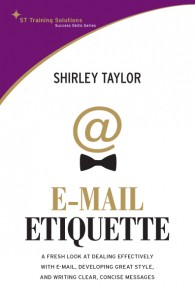 E-mail has promised us a future of minimum effort and maximum communication. However, despite the growth of e-mail, it seems our skill in business writing has evolved very little.
E-mail has promised us a future of minimum effort and maximum communication. However, despite the growth of e-mail, it seems our skill in business writing has evolved very little.
There seems to be a stockpile of old-fashioned words and phrases that many people think should be included even in today's modern e-mails.
For example, do you still use these phrases?
We refer to your letter
Please find attached herewith
Kindly be advised
Please be reminded
the above mentioned
I should appreciate it if you would
It is so inappropriate to use such long-winded language in today's modern, fast-paced business world. All these phrases, and more, are very outdated.
It is essential that business people are able to understand what type of language will work best with their colleagues and clients, and write to them in ways that reflect their personality and their relationship. Not being able to do this runs the risk of sounding unapproachable, stuffy, passive, and even rude.
The longer your sentences are, the harder they are to understand, and they will also be more difficult to read in most people's busy schedules. Using clearer, simpler, more modern language will help both you and your readers. As a result, your organisation will benefit as well.
Today's business language should be proactive, positive and natural, and the key is to write in a conversational tone. This will help to develop productive relationships instead of keeping your reader at a distance, like our great-grandfathers wanted to do.
My advice when composing any business document is to ask yourself: "If I was speaking to the reader, how would I say this?" The golden rule is:
If you wouldn't say it, don't write it!
(Post contributed by Shirley Taylor, author of E-mail Etiquette)

